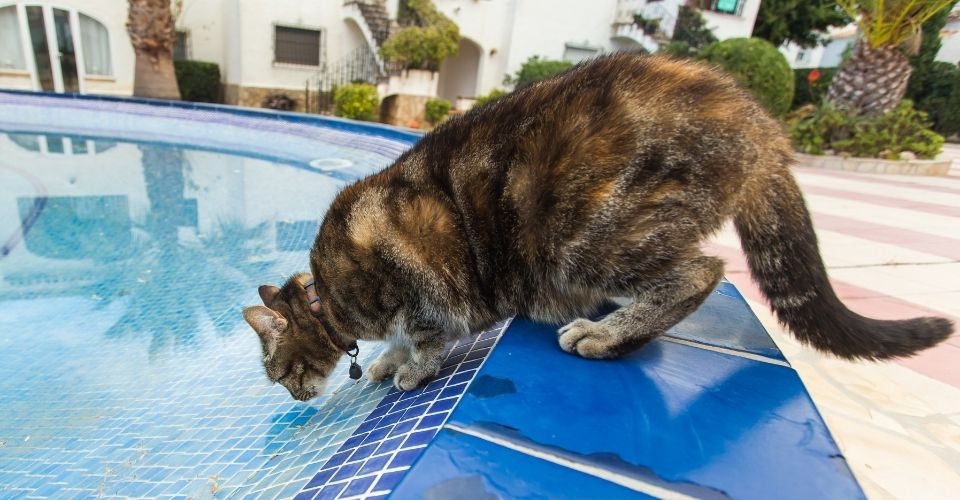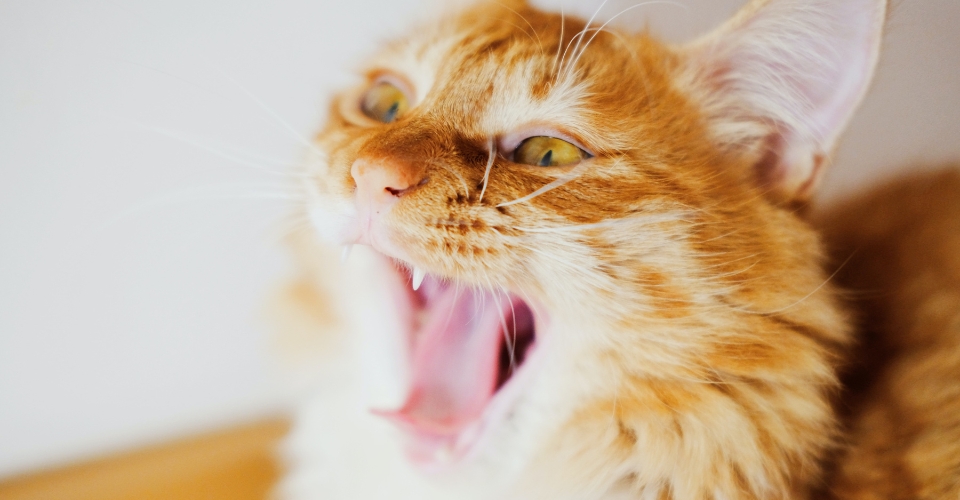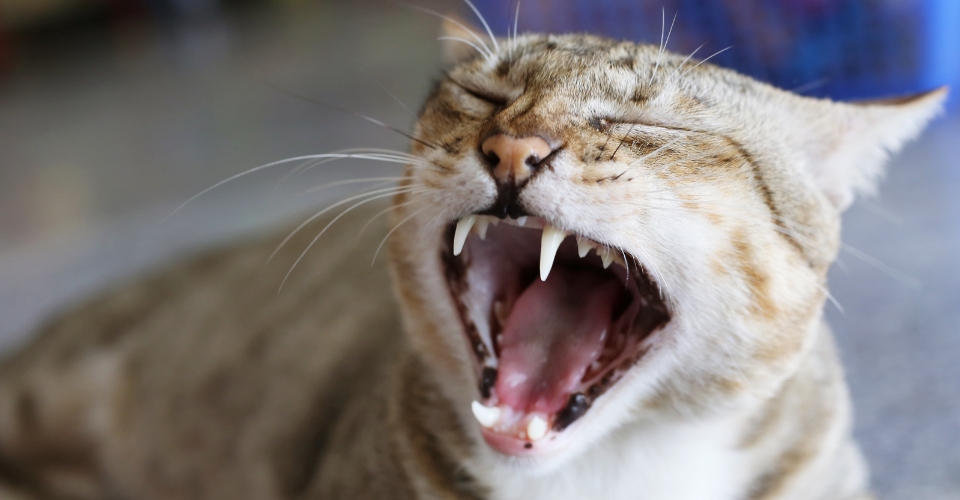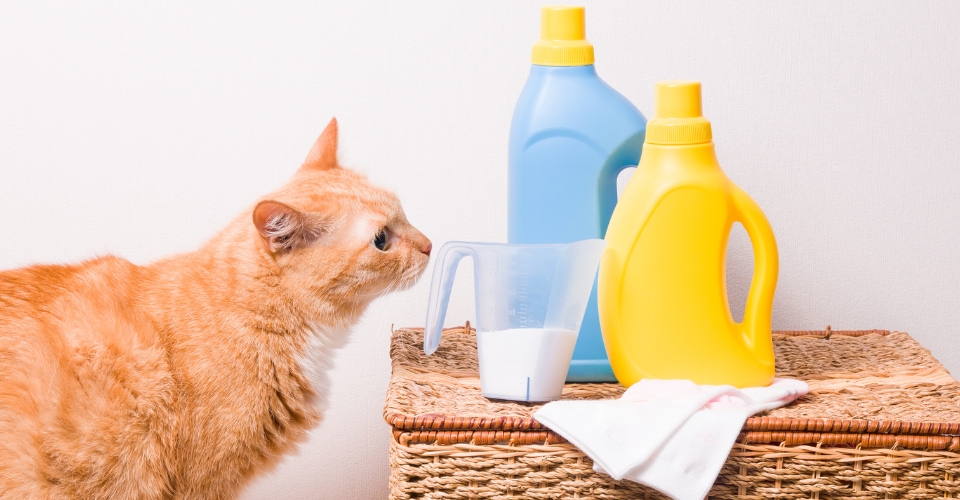Are you preparing to give your cat a bath? But your cat is nowhere to be found—she is hiding. As soon as cats sense that their owners are about to bathe them, they disappear—hide under the couch, behind curtains, dressers, or in the closet. Looking for their cats, one may question: Why are cats afraid of water?
Cats Are Afraid of Water
While there are scores of baseless stereotypes about cats, there is some truth to this one. Have you ever tried to bathe your kitten? If you have ever gone through the hassle of bathing your cat, you’d have an idea just how true this ‘stereotype’ is.
Cats are composed and sober pets but as soon as you get them closer to water, they will lose their cool. There will be meowing, growling, high-pitched yowling, splashing, scratching, and flying fur. Overwhelmed by your cat’s reaction to water, you may get curious to know: why are cats afraid of water? Are all cats are afraid of water? Are there any cat breeds that like water? And can you teach your cat not to be afraid of water?
Are Cats Hydrophobic?
Watching their cats lose their composure at bath time, most people think that cats are hydrophobic. But is it really the phobia of water that is making them lose their cool at bath time?
Have you ever observed your cat staring at the water running from a faucet, intentionally dipping their paw in the water, trying to catch the water?
Here is a cat curiously looking at the water running into the tub.
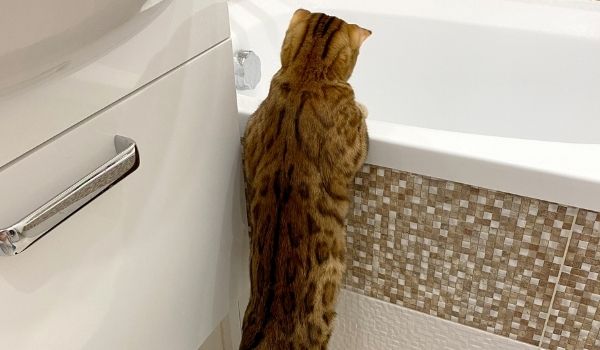
While cats do not enjoy getting wet, they are actually mesmerized by water—the rippling sound of flowing water and the light flickering off the water. The rippling and flickering water are conceived as a sign of potential prey. “That flickering pattern, the light coming off the water, is hard-wired into their (cats) brain as a potential sign of prey”, says John Bradshaw, the writer of Cat Sense. So when a cat is dipping its paw in the water or pawing at the running water from a tap, she is apparently trying to catch a prey.
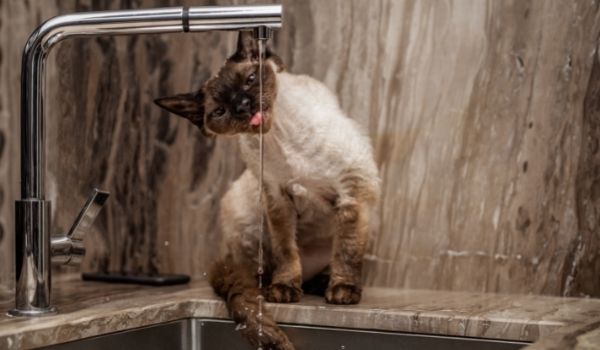
Why Are Cats Afraid of Water?
Watching your cat fascinated by water, you might get skeptical about their fear of water. Well, your suspicion is justified as it is not the water that cats are afraid of but getting wet. Below are the reasons that make cats hate water.
They Evolved in Dry Climates
One of the underlying reasons for cats’ aversion to water has to do with their evolution. Most of the domestic cats have descended from cats living in the Middle East region. Living in the dry and arid region of the Middle East, our cats’ ancestors did not have much access to water bodies, such as rivers and lakes. They were unfamiliar with water, except the drinking water. On top of that, it did not rain much in these areas. How did we evolve influence our modern life, and the same is the case with modern-day cats—their aversion to water is totally understandable.
Their Furry Coat
Another big reason that keeps cats from getting wet is the nature of their furry coat. While many canines have a coat that is water-repellent, cats are not much lucky. Where dogs can easily dry themselves off by simply shaking their body, cats cannot. Cats get wet to their skin, needing a long time to dry off.
Cats’ body temperature drops sharply. When in water, they readily start feeling cold. Therefore, they try to get out of the water as soon as possible. If the environment is cold as well, wet fur could be a death sentence for cats.
A wet coat becomes a lot heavier, making it difficult for cats to move around. Moreover, wet coats pick up dirt, dry leaves, or anything that it touches. This means extra grooming time. Cats are fastidious creatures and will be grooming themselves again and again until their coat completely dry off.
Cats in the wild cannot afford to get wet, as wet fur makes it difficult for them to move around. This will not only make them miss their prey but would also keep them from making a good run for their lives if another predator up in the food chain starts chasing them.
When in water, they will not only be less agile but if some predator attacks them in the water, they will not be able to properly defend themselves as they are using their paws for swimming.
Scent
In the wild, cats are predators as well as prey. To survive in the wild, they have to be very careful. They cannot have any smell on the wind, telling other predators about their presence and location.
If they get wet, their coat will have the smell of boggy water, which makes them more vulnerable. This will not only tip nearby predators about their presence but would also make them less agile. If a cat does not dry her skin soon, there is a huge chance she will be losing her next meal—prey—due to her reduced agility or will be becoming a meal herself of some bigger predator.
It Might Be Their Ears
Cats have deep air canals. If they go take a swim, there is a huge possibility that some water might get in. While we, humans, can easily get water out of our ears, it is quite difficult for cats to get water out of their ears. Due to the depth of the ear canal, some droplets are trapped in the ear canal, making it a perfect ground for yeast and bacterial infections to develop. In addition, it causes them incessant pain.
Post Trauma
Many cats are also afraid of water due to some past event. Being suddenly sprayed by water, caught in a downpour, accidentally falling in water, or being submerged in water by playful cat owners may make cats fearful of water for the rest of their lives.
Are There Any Cats that Like Water?
Have you ever seen a cat swimming or watched cat swimming videos? Since cats are known for hating water, we are mesmerized by cats playing in the water. It might be hard to believe but some cat breeds actually like water. While some cats only like to play with water coming down from faucets, others will jump in the pool and take a swim with you.
Which Breeds of Cats Can Swim?
Tigers and many big cats, such as Maine Coons are known for their swimming prowess. These big cats have learned to use water not only for cooling themselves down during hot summer days but also for their hunting strategies. These big cats do not have to worry about being attacked by small predators in the water and if it happens, they can put up a strong defense.
Turkish Van cat that originates from Turkey’s Eastern Lake Van region is known for its swimming abilities. Animal Planet explains that they have a swimmer’s body, and love to accompany their owners to the pool. Unlike other cats that hate water, Turkish Vans have a silky, waterproof coat.
Similarly, Bengal and Sphynx cats are also comfortable around water. Sphynx cats are known for their lack of hair. Their body generates a lot of oil, which attracts dirt. Therefore, they are required to be bathed regularly. Unlike other cats, Sphynx enjoy their bath time.
How to Teach Your Cat Not to Be Afraid of Water?
Watching swimming cat videos on YouTube or your friends’ cats accompanying them to the pool, you might be curious to know if there is anything that will make your cat try swimming. Well, expecting your cat, fearful of water, to start swimming is a bit of a longshot. How about we start by getting her to tolerate water during her bath sessions?
Here are some tips for teaching your cat not to be afraid of water.
- Introduce them to water when they are little, but be careful. Make sure that water does not enter their ears.
- Put your kitty in an empty bathtub, give her some toys to play with. You should also jump in and play with her. At the end of the playing session, you should give her some treats as a positive reinforcement. Do this for around a week.
- When she is comfortable in a dry tub, you should start rubbing her with a wet cloth.
- Next time, you can pour in some warm water in the tub. Throughout, you should keep playing with her so that she is focused on you and not the water.
- Then you can start holding her while you are in the tub full of water. Make sure you do not dip her in the water suddenly. This will shock her and make her scared of water for the rest of their lives.

